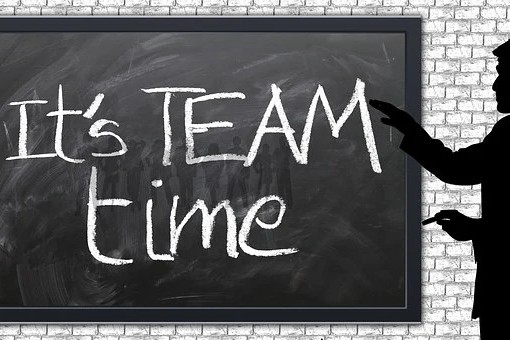The typical HR department has responsibility for the “people” functions of the organization. While lists of these functions vary, they usually include recruitment, benefits, compensation, employee relations, and training & development.
These functional areas can include a lot of activities: selection, onboarding, performance management, recognition, legal compliance, policy administration, employee events, leave administration, educational assistance, etc. The activities related to these functions goes on and on.
With continuing advances in technology and increased specialized knowledge becoming more important, it is becoming more difficult for HR departments to maintain optimum skill levels in these areas. There is a whole lot of information to master if all of these HR functions are to be kept internal.
Outside competition
There are now many firms that are specializing in what used to be internal HR activities. These companies focus on one area and usually do it very well due to their investment in cutting-edge technology and specialized knowledge. If these outside organizations can execute the HR functions better than the organization’s HR department, then why is the HR department needed?
Outside firms are now focusing on many of the HR functions competing for this business. Here are just a few typical HR activities that can (and are) being done outside of the HR department:
- Payroll – Not only in generating payroll, but some firms will manage the entire compensation program including salary surveys, pay range administration, etc.
- Benefits – Health coverage administration by insurance carrier or TPA if self-insured. These organizations will also administer leave practices including FMLA.
- Recruitment – job sites and others have expanded into managing entire selection process. Large databases, advanced technology and proprietary algorithms provide competitive edges.
- Recognition/rewards – Firms that sell recognition products often have creative and performance based programs. Many will now manage your recognition programs.
- Educational assistance – Outsourced educational assistance programs can offer the employees more because of additional knowledge of federal/state educational savings programs and tax incentives.
- Training & Development – Many firms will now do monthly management/staff training for a set fee.
Did I miss anything? Probably! You get the picture–companies are carving out parts of HR and getting very good at doing that one thing. It gets harder and harder for HR departments to compete with these firms.
Outsourced HR functions can often be done better
In my personal experience, I outsourced several things that we had been doing in HR with results that were better than what we could have achieved internally:
- WC administration – handled by our unemployment compensation insurer. Their knowledge helped us reduce WC costs.
- Leave/FMLA administration– the TPA for our self-insured health plan administered FMLA. Their focus and specialized knowledge enabled us to stay in compliance with all regulations, deadlines, etc.
- Clerical recruitment – One organization had high turnover in entry-level clerical positions. We used an outside firm that specialized in placing clerical staff. The employees started as temps and went permanent after 90 days. Turnover was greatly decreased, our managers loved it!
- Training & Development – A hospital contracted with a large outside management consultant firm for management training. The firm was paid a flat, monthly fee. The training was cutting edge because it was the outside firm’s job to maintain knowledge, and the hospital had access to a large number of trainers and consultants.
The point is that most of these companies are very good at what they do. So that presents HR with a dilemma: either compete or use them! Which brings us to the question – if all of these areas of HR are outsourced, what will be left internally? Employee relations? Don’t bet on it. There are already firms that will place employee relations/performance management specialists in the organization.
Maybe there will be a HR coordinating function that survives–a CHRO with few or no direct reports-just coordination with the outside providers. If we want to keep pursuing this line of thought, why would the CHRO have to be there? If the expertise is external, why couldn’t the COO or CFO or some other pooh-bah coordinate with the vendors?
I know I am exaggerating but not by much. The outside vendors are nibbling away at the typical HR functions. Has HR demonstrated the significance and value of its contribution? Can HR describe how it directly impacts profitability, quality and satisfaction? If not, then HR becomes a much smaller function or needs to take a different approach.
Expanding HR’s role
If you have read many of my posts, you know I believe that HR should be the “experts on the utilization and management of human resources”. This charge was given to me by a CEO early in my career when he told me that he didn’t need a cheer-leading department.
What this means is that HR focuses not only on providing satisfied employees to do the work, but becomes expert in how they are used, what environment, compensation, and rewards best accomplish organizational goals, etc. It means that HR focuses as much on the worthwhileness of the work as the worthwhileness of the employee!
Does this mean that I advocate HR having line authority and dictating how jobs are designed? Of course not! In healthcare, HR is generally staff or advisory. HR doesn’t know what a Physical Therapist does. It does not know the specifics of many clinical jobs. This job specific knowledge is maintained in the department and the responsibility of the line manager.
The knowledge that HR should bring to the table is: process improvement, how to assist managers in designing jobs that maximize the skills of professionals, how to measure and improve productivity without impacting satisfaction, effective team-based incentives, rewards that bring measurable results, etc.
Adding value
When HR shows that its activities are DIRECTLY and MEASURABLY related to achieving organizational goals, it makes itself more essential to the operation of the business.
My philosophy is “outsource some of the HR functions if they can be done better externally. We will still manage and coordinate these functions but our focus will be assisting the operational departments in achieving results in profitability, quality and satisfaction that exceeded their expectations. It can be done and HR can be a driver!
T





